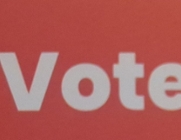UN 2030 Agenda: leaving no one behind
CLGF Secretary-General Dr Carl Wright
October 2015
In late September I had the privilege of attending meetings of the Global Task Force of Local and Regional Governments in New York, coinciding with the UN Summit which adopted the 2030 Agenda on Sustainable Development including the new Sustainable Development Goals, the SDGs. This included taking part in a number of key events including a high level discussion alongside the Presidents of Mongolia, the Swiss Federation and the Vice President of Botswana, organised by the International IDEA, where I was able to highlight the role of local government in building effective, accountable and inclusive institutions at all levels under Goal 16.
Our efforts have been rewarded with the 2030 Agenda giving explicit recognition to the role of local and sub-national government, both in respect of specific SDGs, such as Goal 11 on inclusive, safe, resilient and sustainable cities and human settlements, as well as in the provisions relating to the implementation and the follow-up and review of the SDGs. This highly successful outcome of over two years of committed advocacy work by CLGF, UCLG and other partners has opened the way to realise the huge potential of local government in helping to meet the ambitious goals of the 2030 Agenda. It also shows how the Commonwealth- in this case through CLGF- can add global value, a theme which will be the focus on discussion by the Commonwealth Heads of Government when they meet in Malta in November.
CLGF members- local governments, as well as ministries, must now work with the UN and development partners, civil society, the private sector and others to ensure that the SDGs are properly localised and that they have the necessary know-how and capacity to deal with the setting, implementation and monitoring of SDG targets, 2015-30. There is much that local governments are already doing in many areas covered by the SDGs and this experience and know-how will now need to be linked into the new 2030 strategy. Local government in all Commonwealth countries should therefore take the initiative in contacting their respective national and provincial ministries and governments to discuss how they can work together to implement the 2030 Agenda, noting that the new SDGs to apply to all countries everywhere, developed as well as developing, small and large.
It is also important to note that CLGF will give active support to its members, in line with the provisions of the Gaborone Declaration- Local Government Vision 2030. For example, CLGF, in collaboration with UNDP, recently convened a ‘Cities 2030’ meeting in Singapore, bringing together senior mayors and city managers to discuss the implications of the 2030 Agenda and how the new CLGF Commonwealth Sustainable Cities Network can move forward. This came up with a series of valuable suggestions for city-based action, which CLGF will wish to help implement together with partners such as Cities Alliance. Similarly, CLGF will continue to work within the framework of the Global Task Force to share knowledge and assist in building capacity with support of its key strategic partners such as UNDP, the EU and UK DFID and encourage other development partners to support the approach. I also raised this at the annual meeting of the Decentralisation and Local Governance (DeLOG) network of development partners in Bonn a few weeks ago.
There however remains some unfinished business. The work on finalising all the SDG indicators and targets will continue until March 2016 and the detailed arrangements for follow-up and review, notably at the sub-national level, need to be refined. This must be a bottom-up, not top-down approach, entailing, for example, close coordination with national associations of local government. Likewise, the envisaged UN Global Partnership needs to give clear recognition to local government as a distinct sphere of government, separate from civil society and the private sector. This applies also to the arrangements for the forthcoming Habitat III Conference which is to set out a New Urban Agenda which must be based on SDG 11 and other relevant provisions of the 2030 Agenda, some 65% of which has been calculated to involve urban-related SDG targets. To date there appears to be a political disconnect between the urban-focus of Habitat and broader goals relating to decentralisation and local governance. This must be resolved before Habitat III convenes in Quito in 2016. I hope that CLGF’s new membership of the UN Advisory Committee of Local Authorities (UNACLA) will allow to bring relevant expertise to the table to help achieve this.
I am delighted that this month I have been asked to moderate a high level discussion with, among others, the UN Secretary-General Ban Ki-moon, at the Turin Third World Forum of Local Economic Development. Economic growth is a key component of the 2030 Agenda and a priority area for CLGF and its members. In conclusion, I would like to quote Mr Ban Ki-moon, in his message to senior mayors in New York on 25 September when he said ‘Mayors will play a critical role…your efforts…have an impact across the entire spectrum of the (2030) agenda. That is how we will leave no one behind’.





